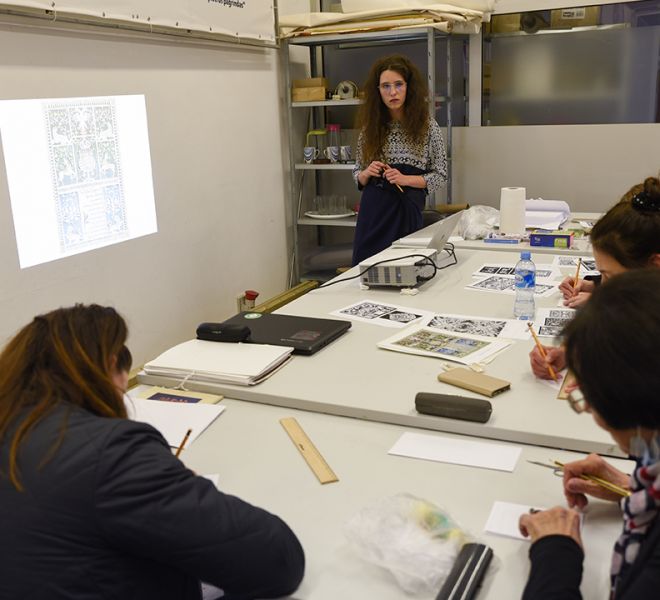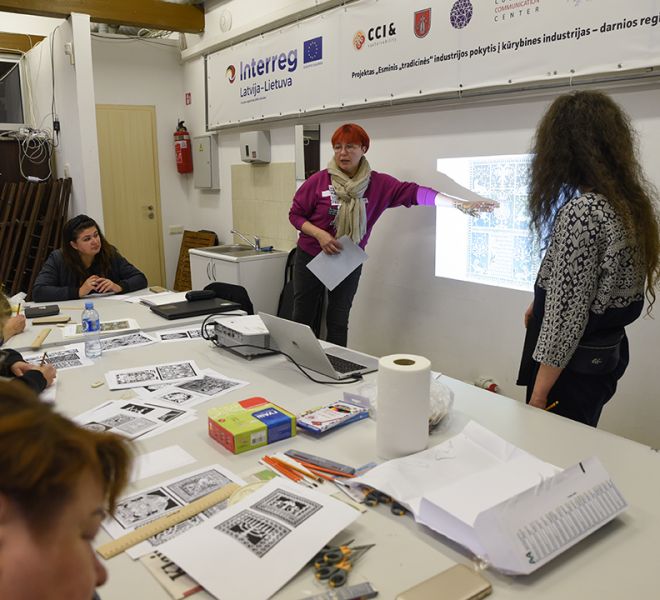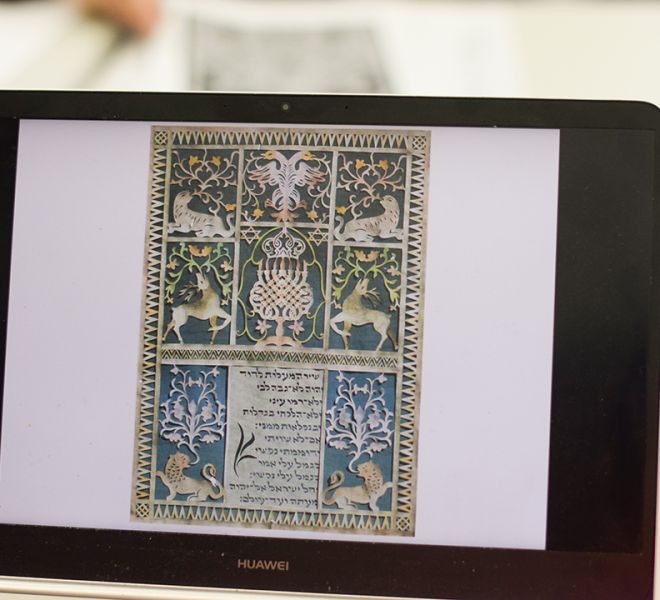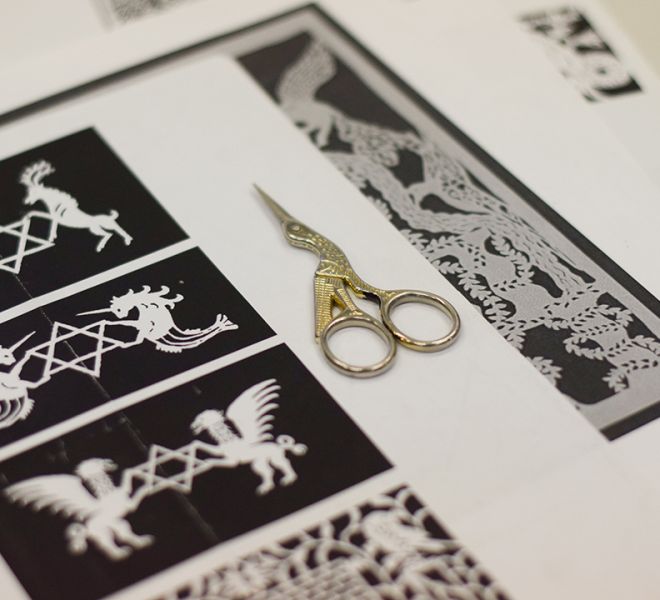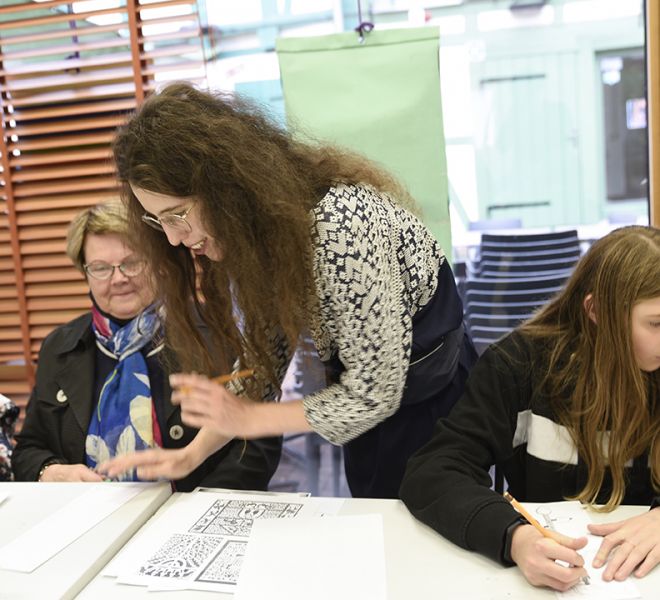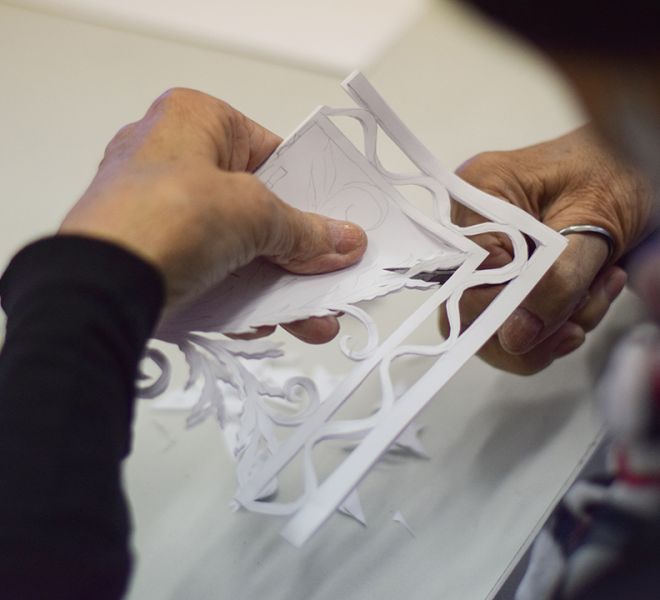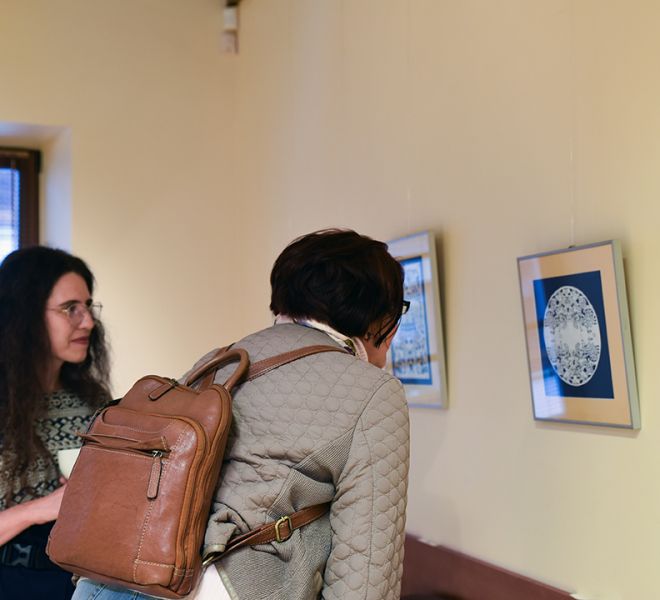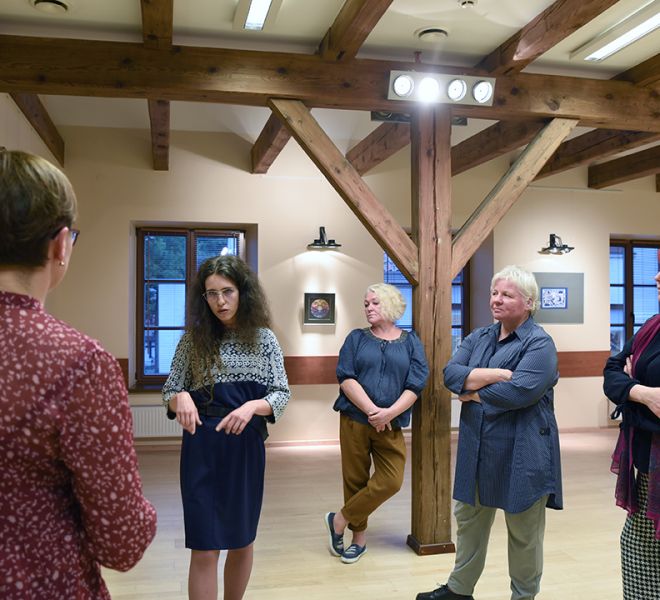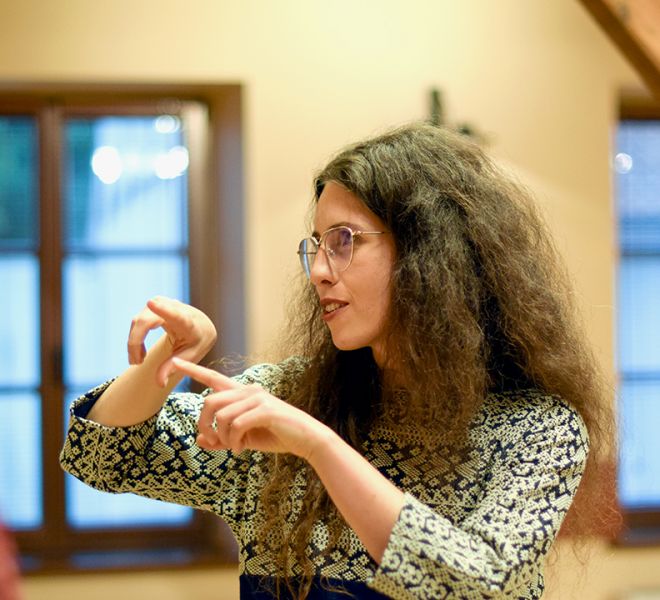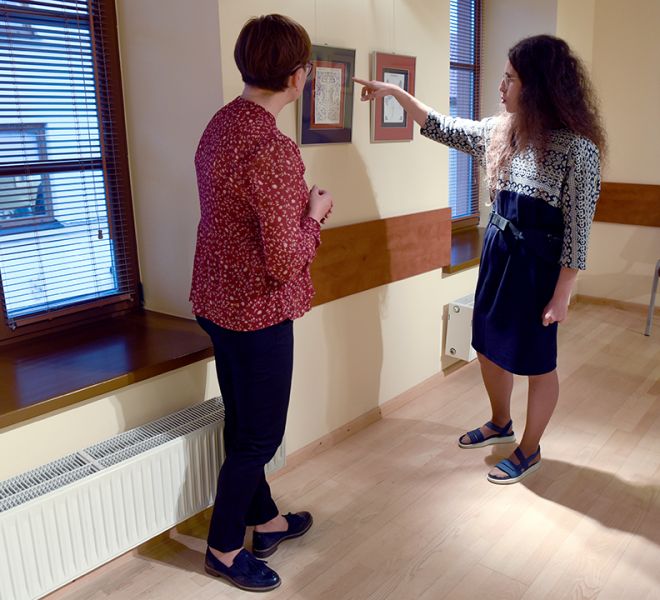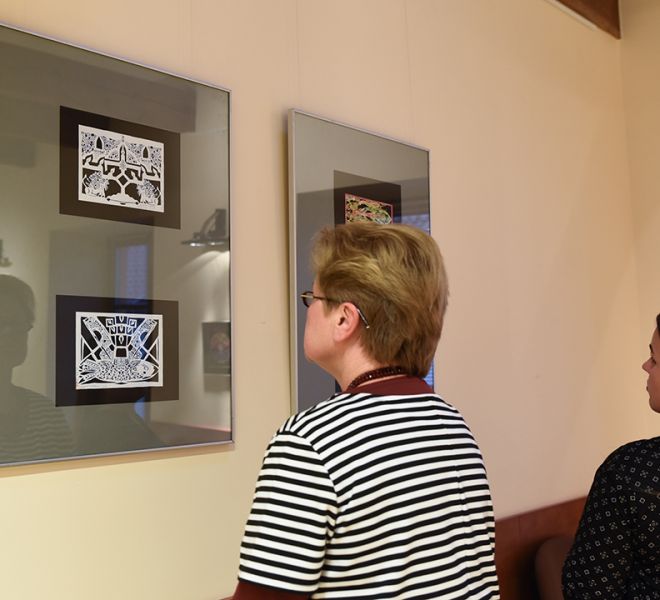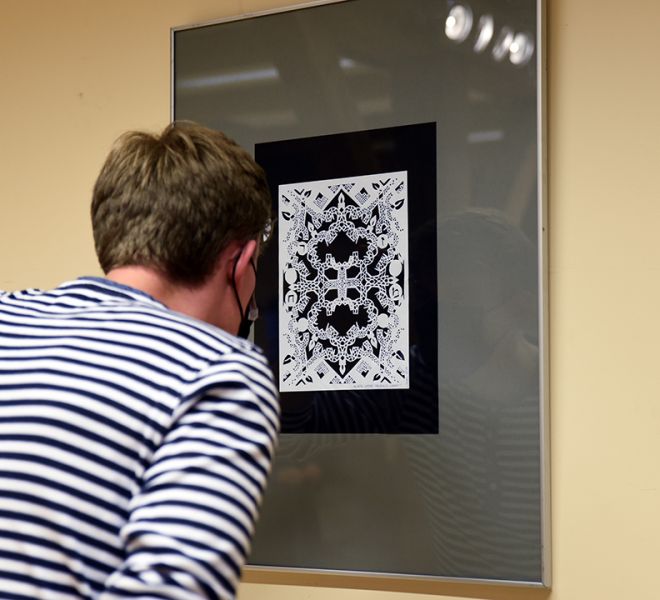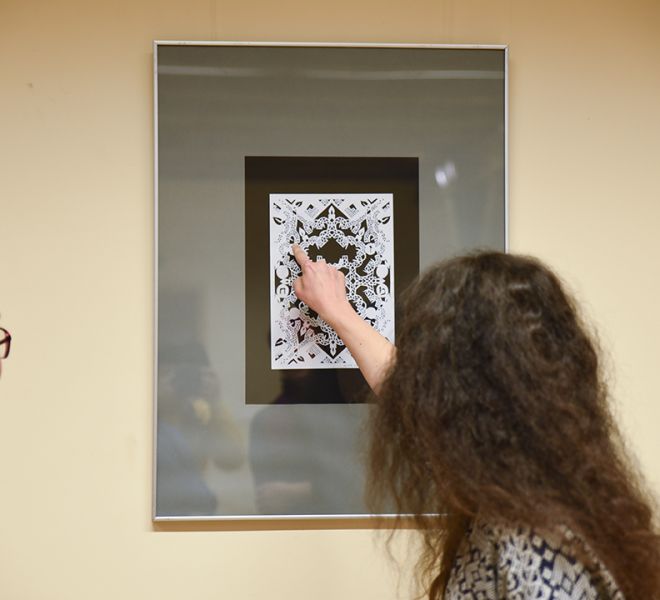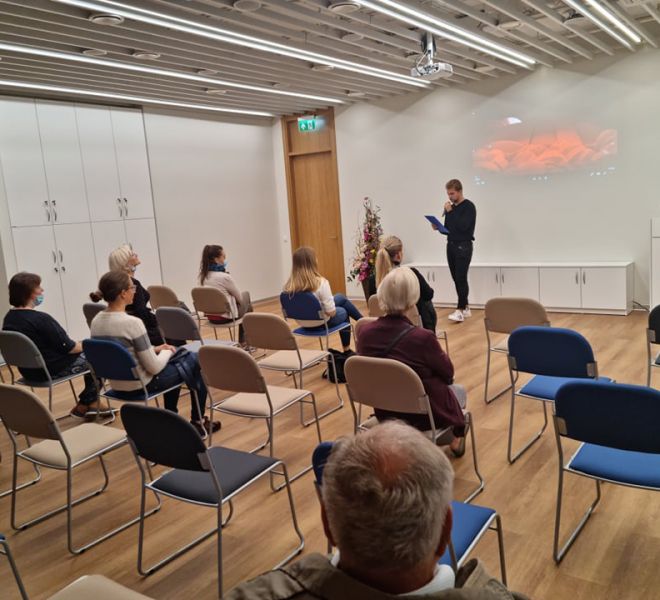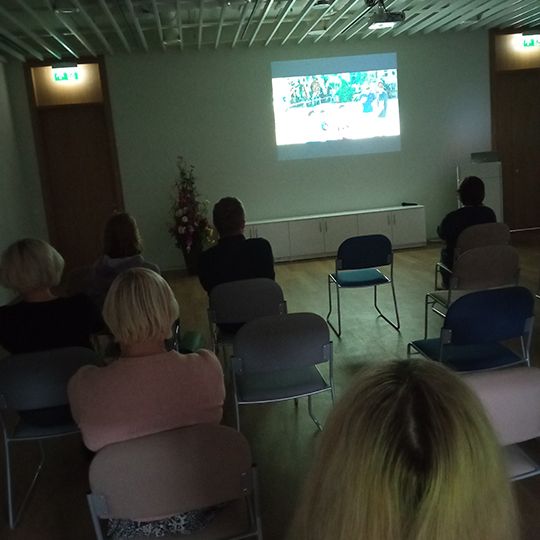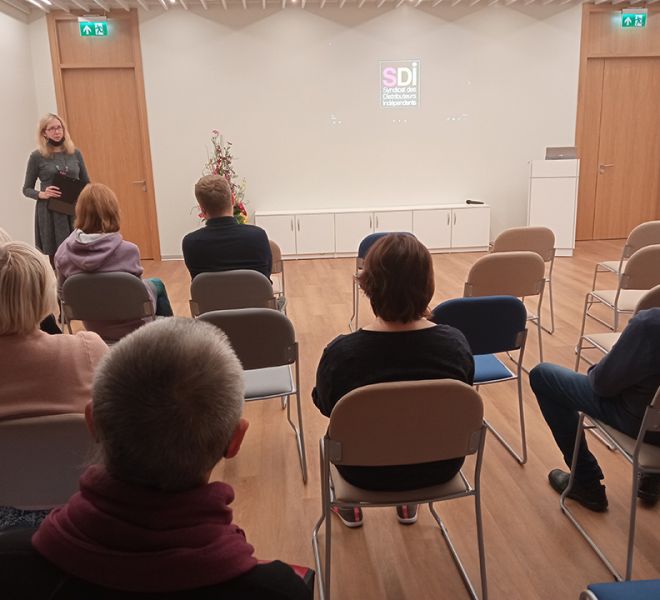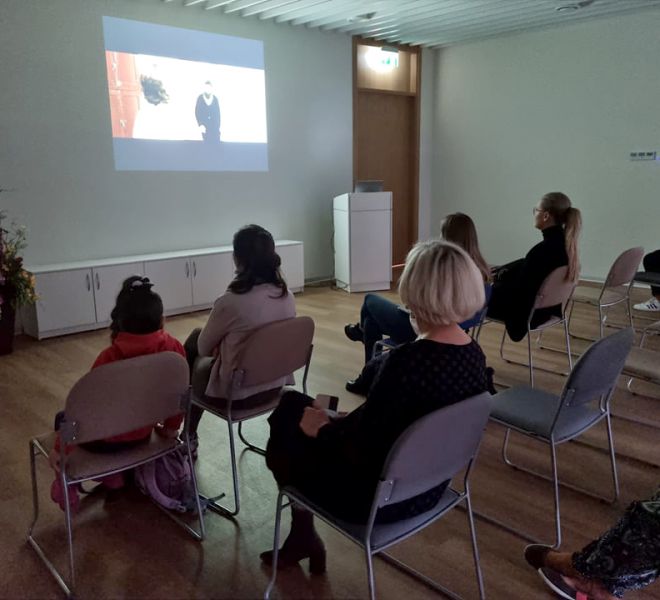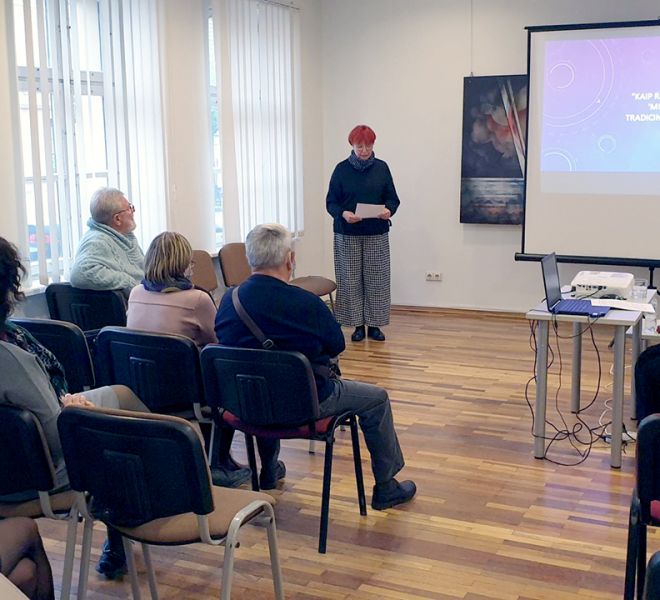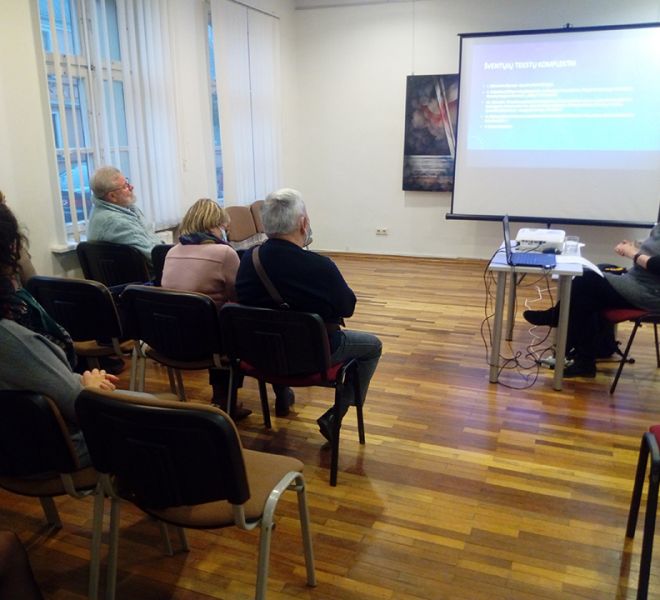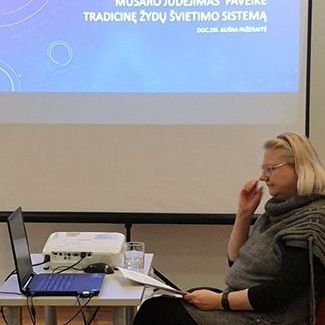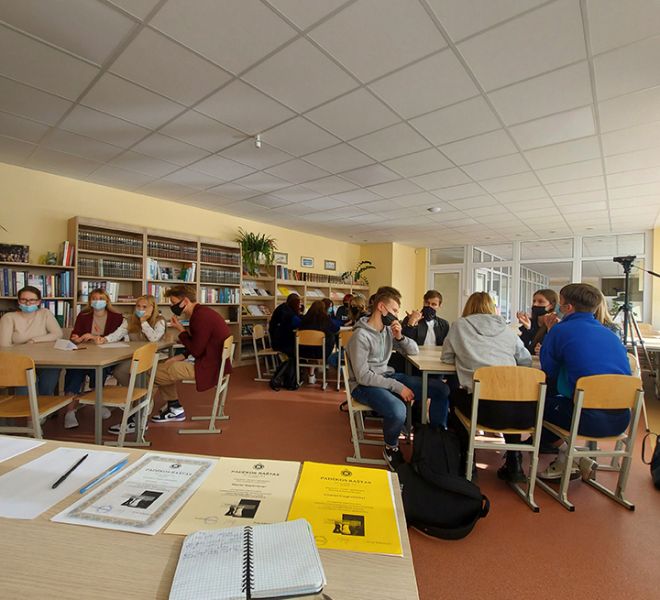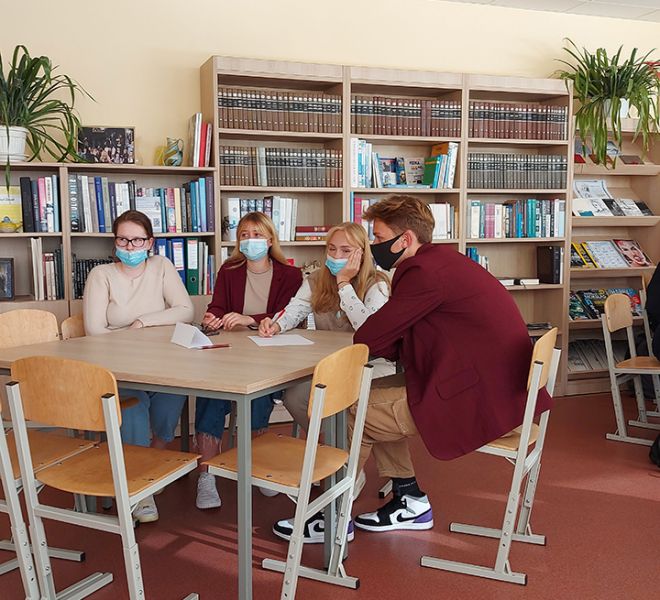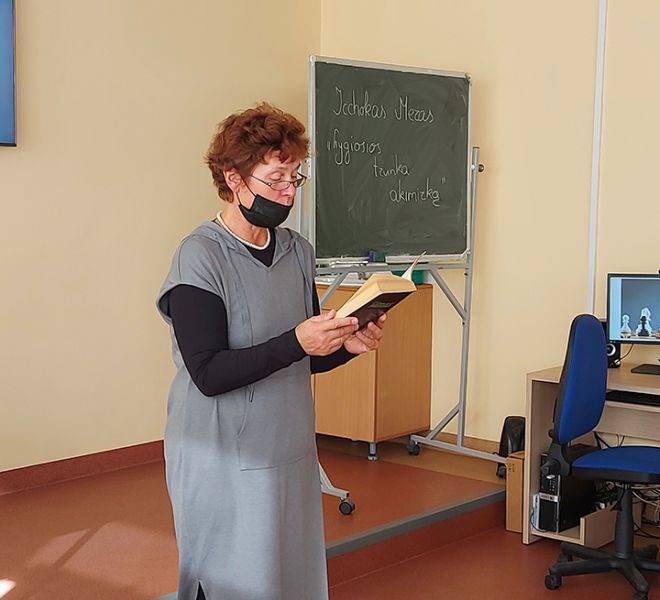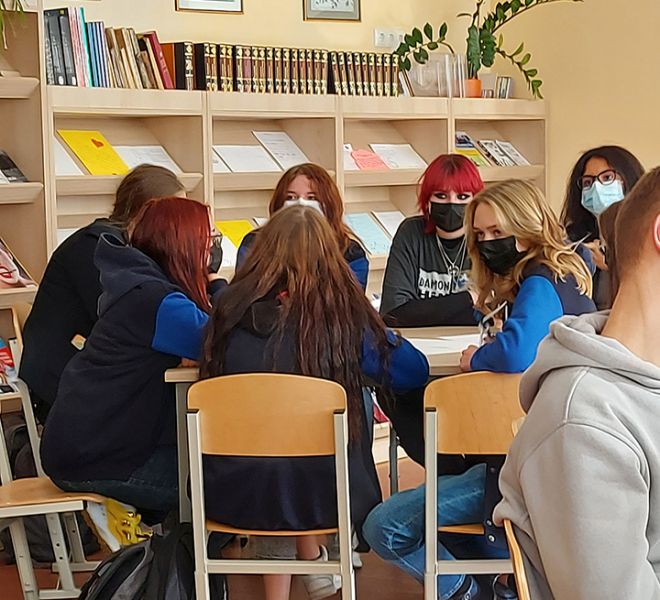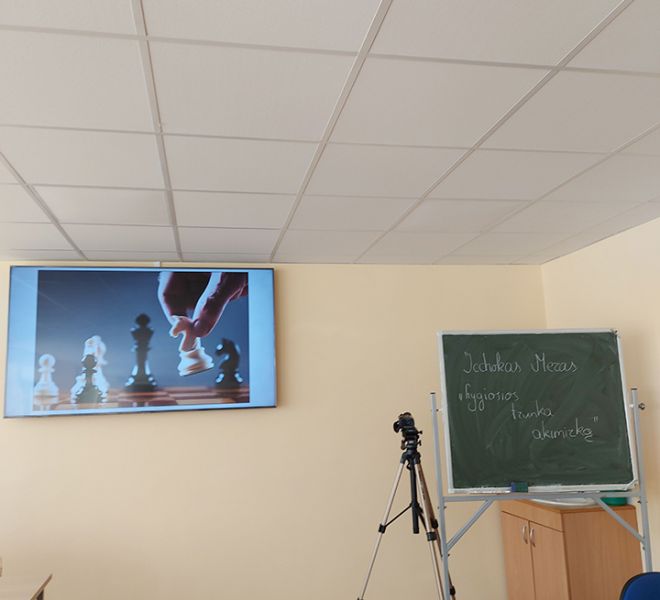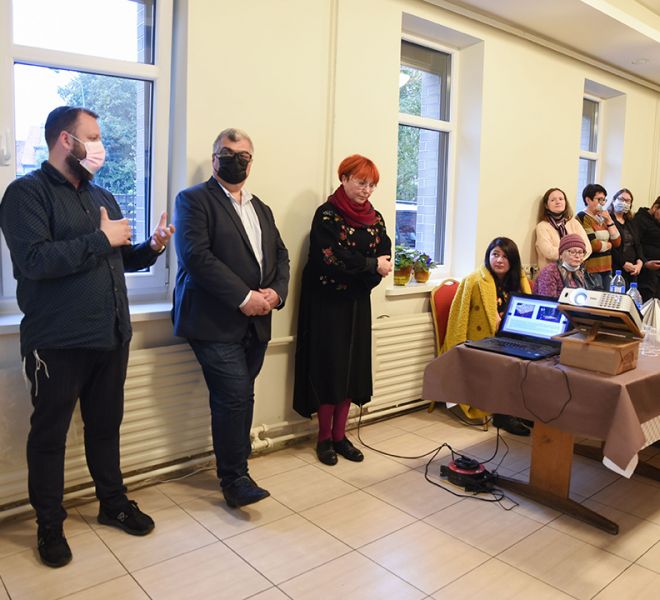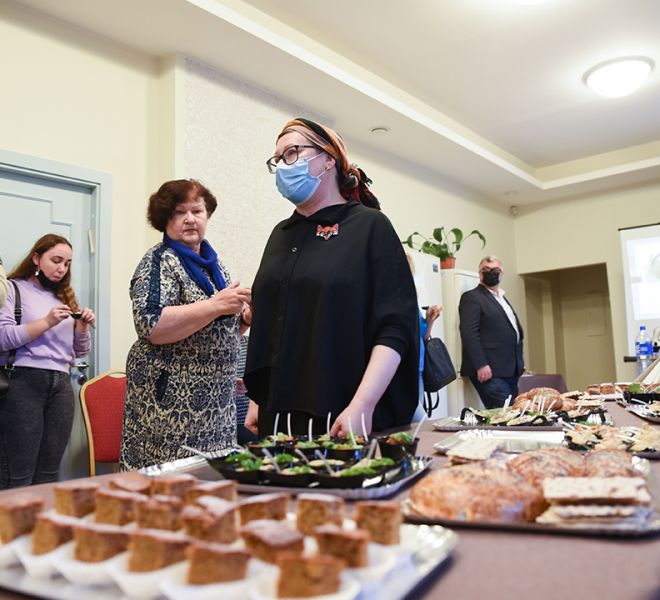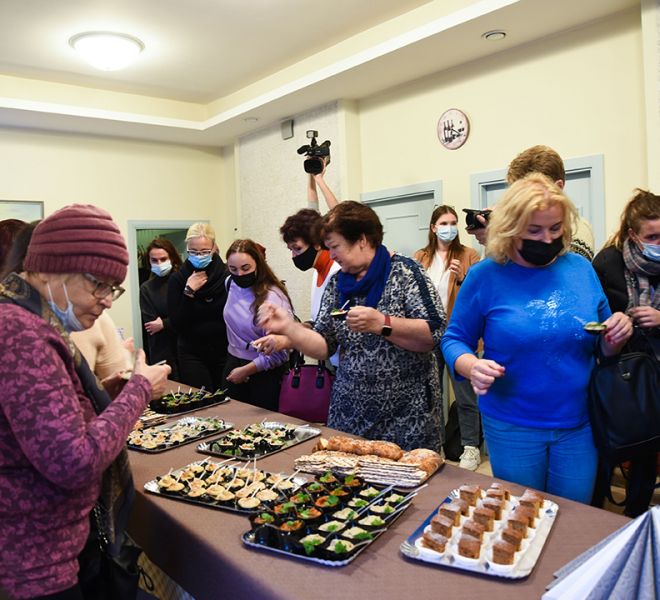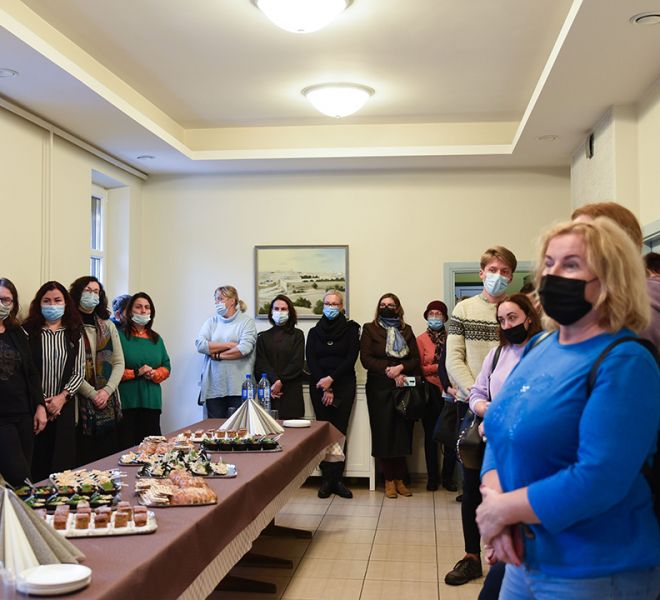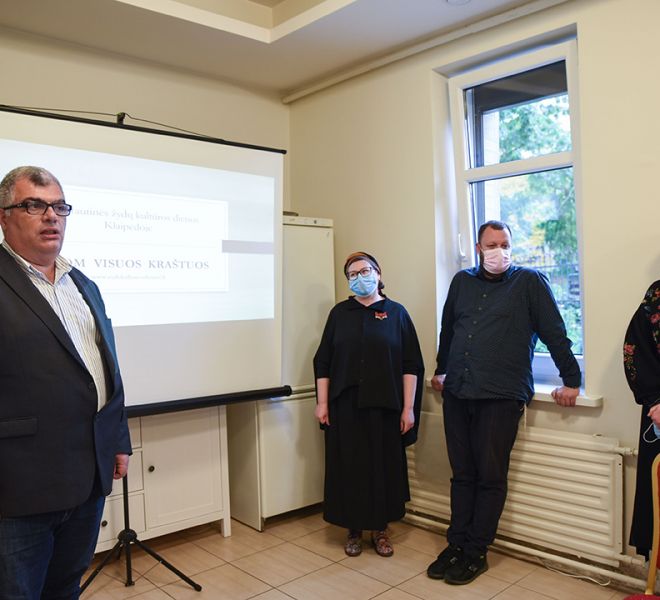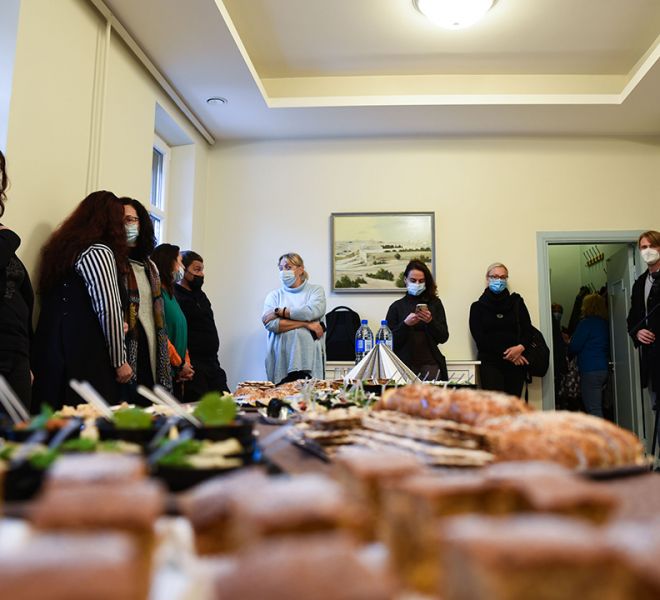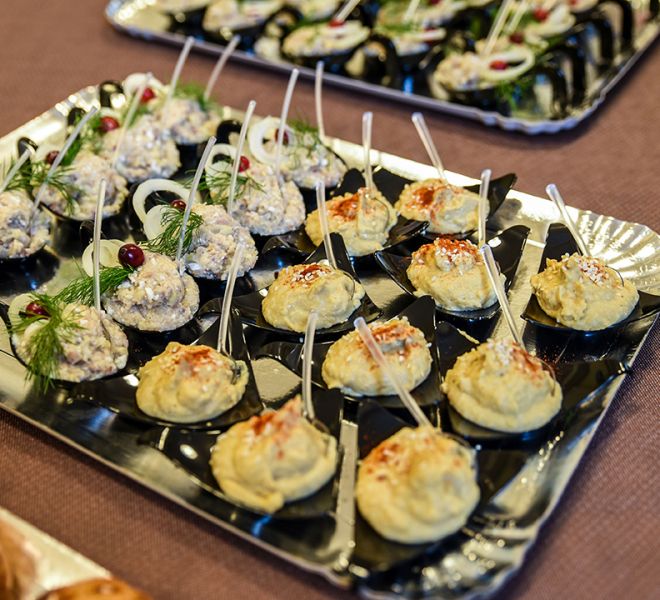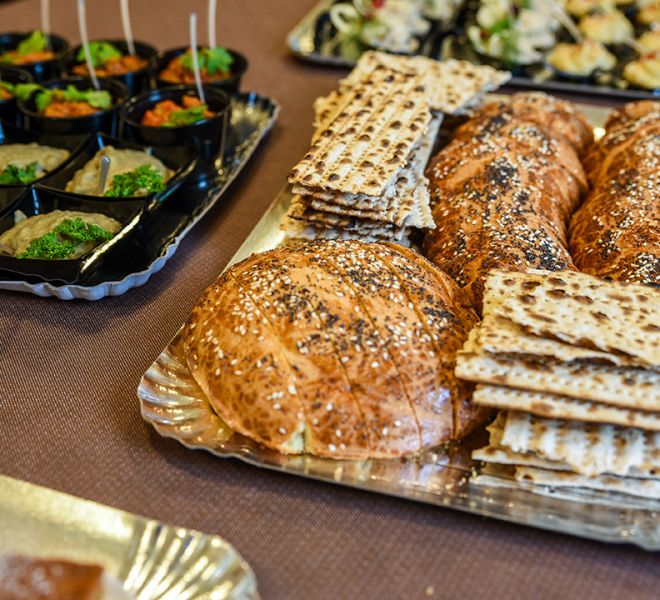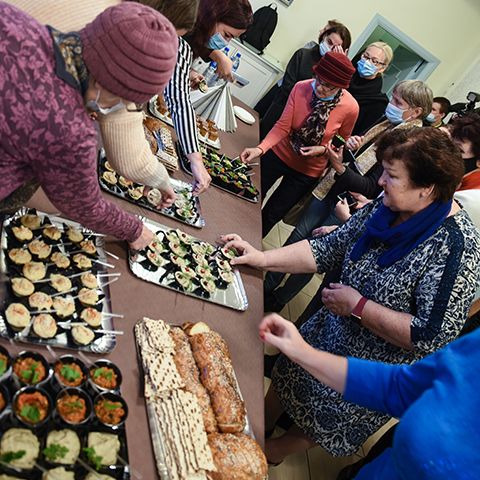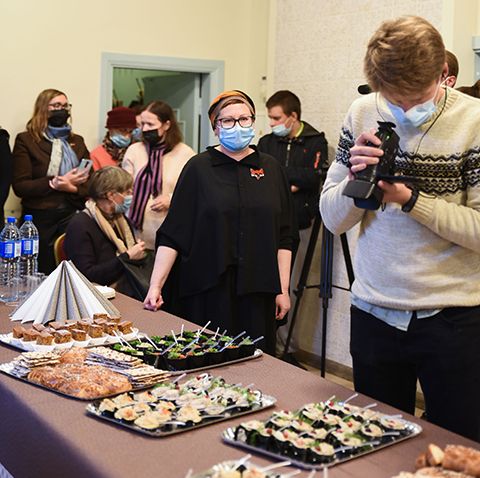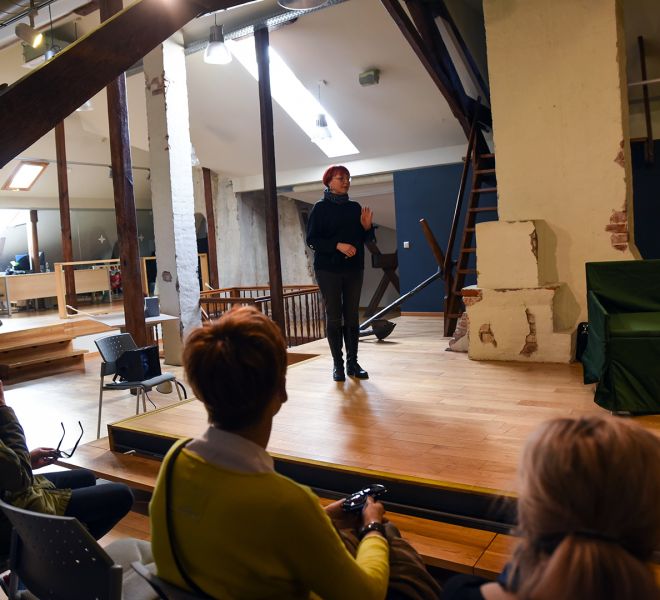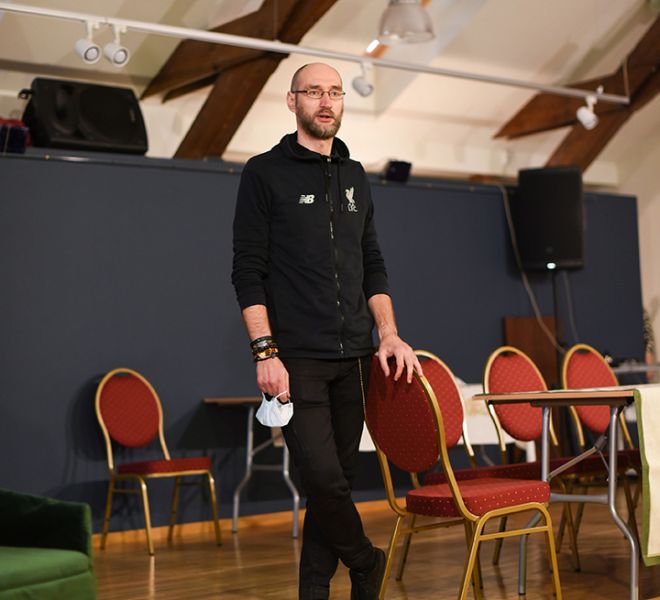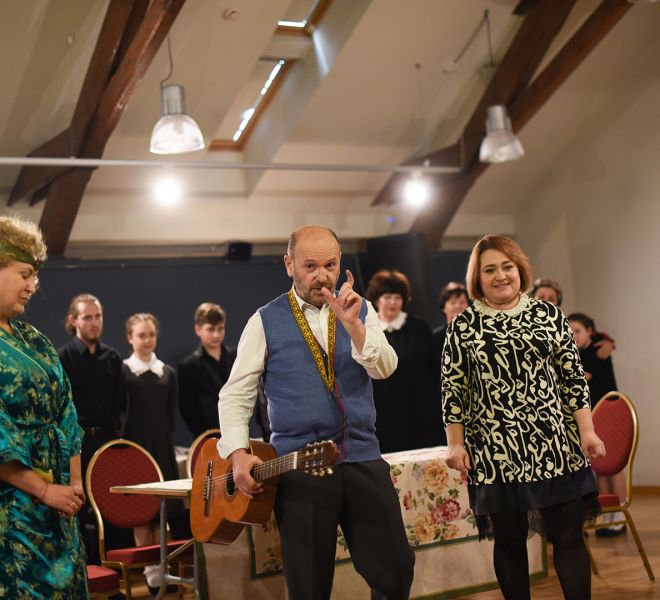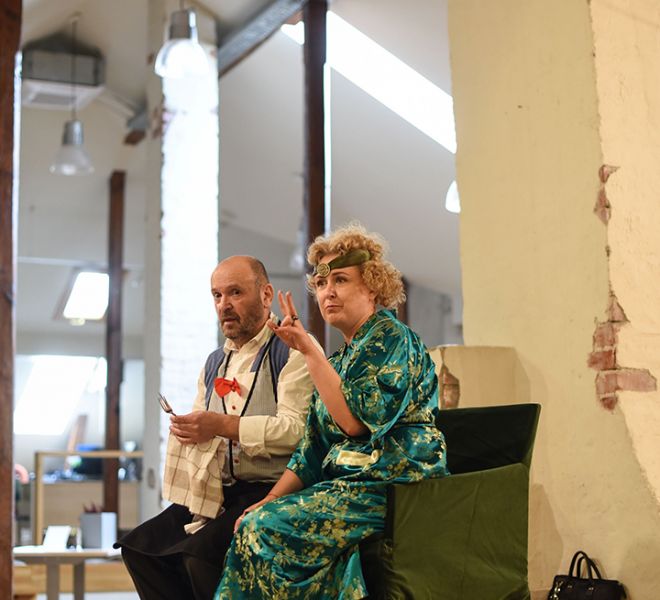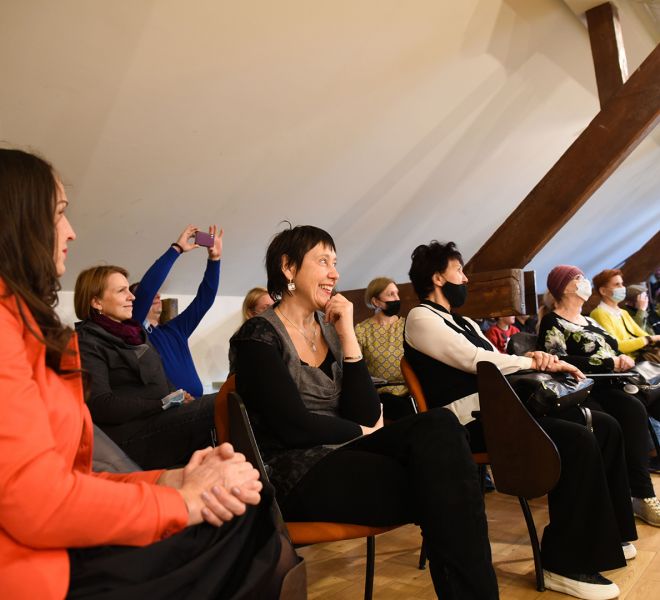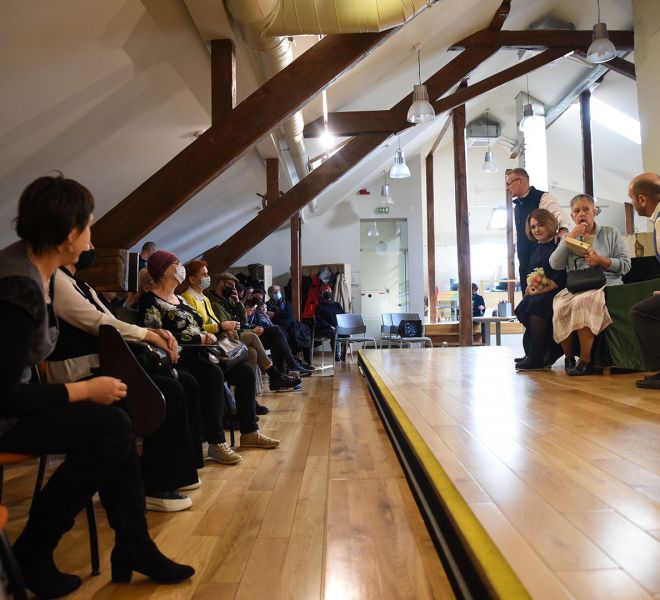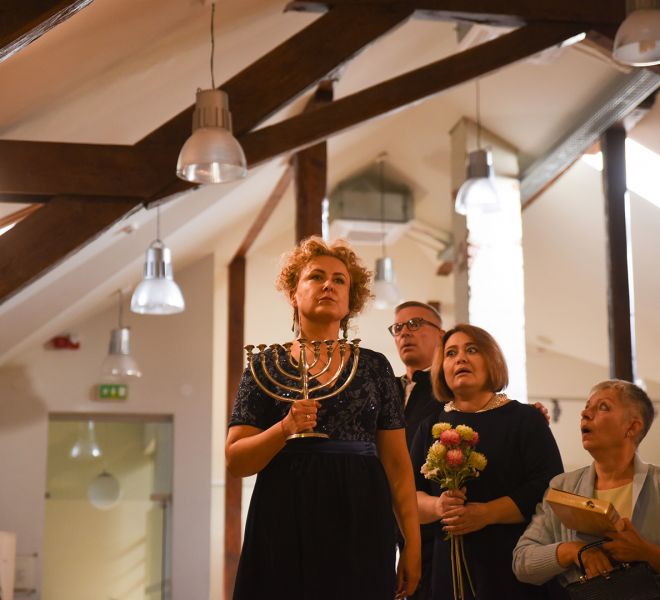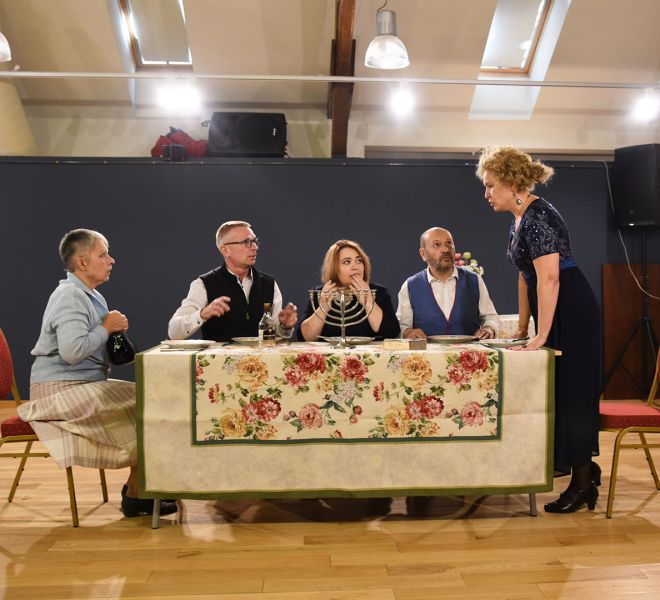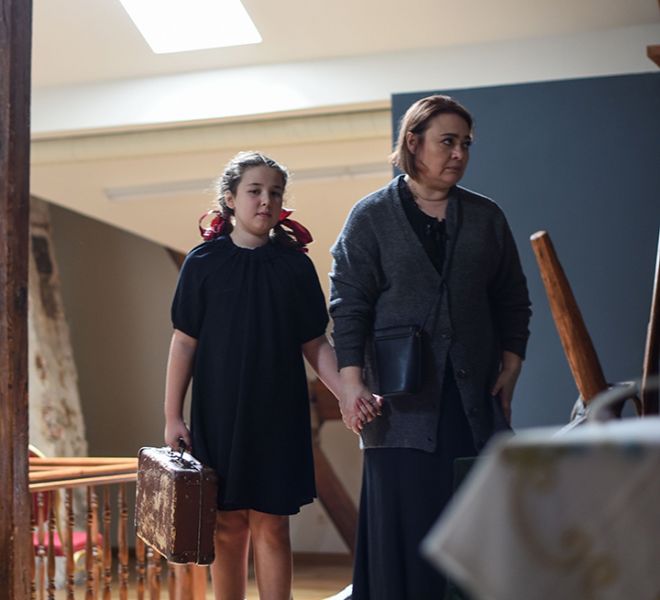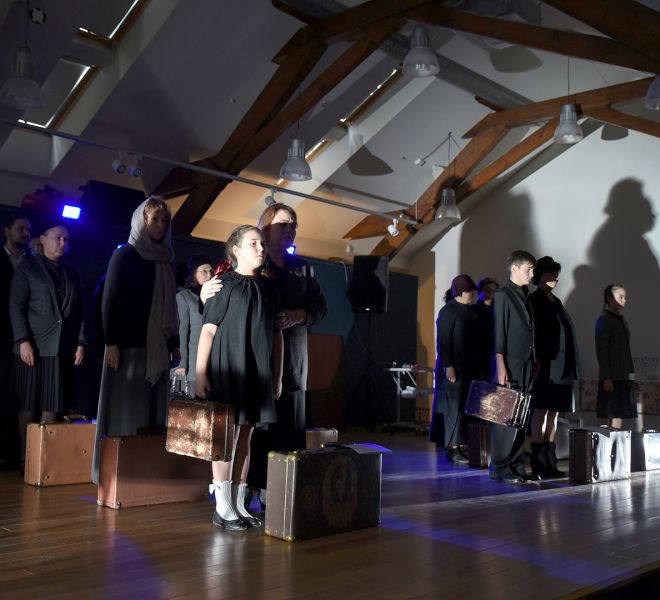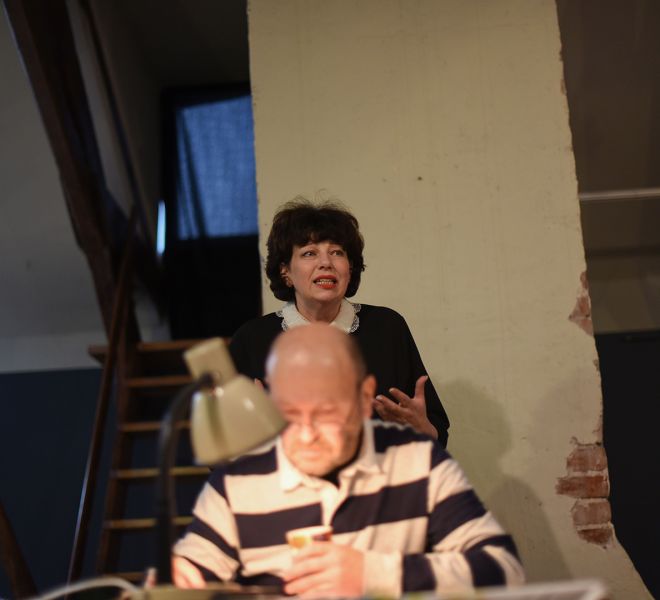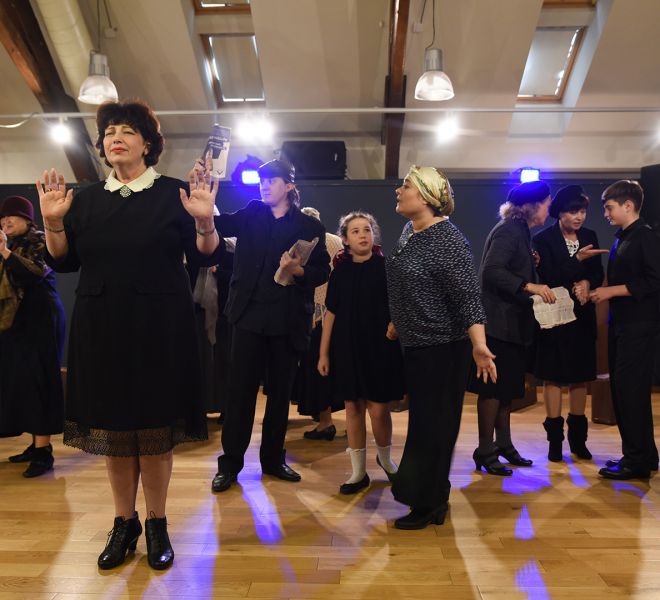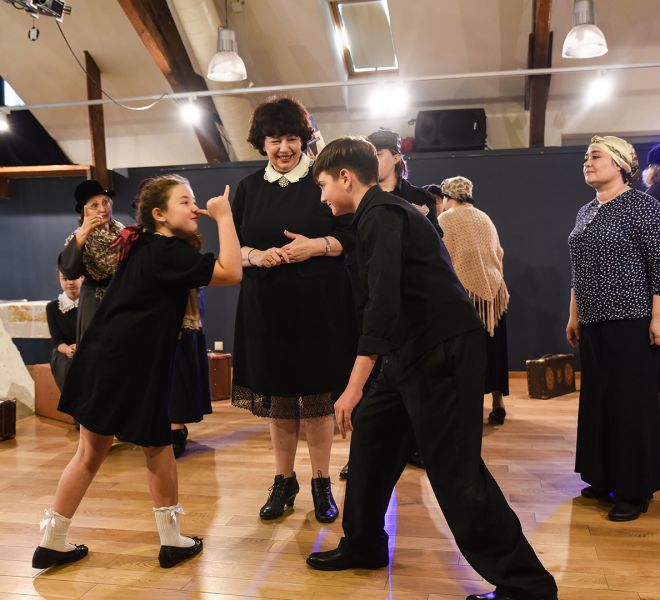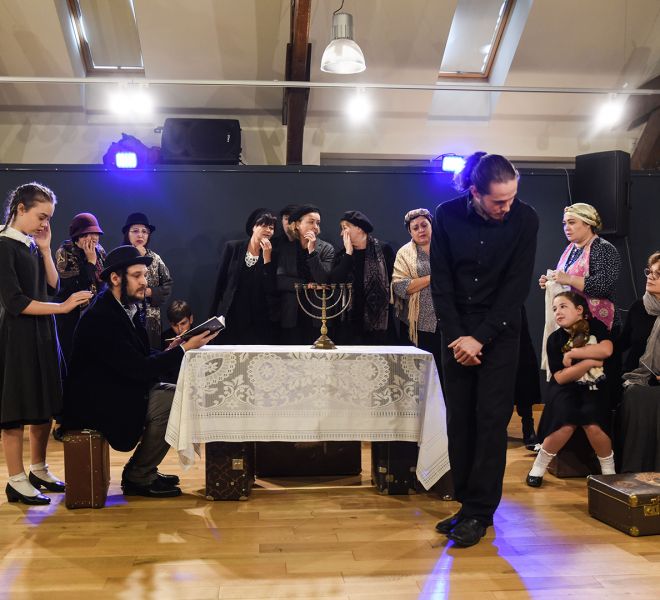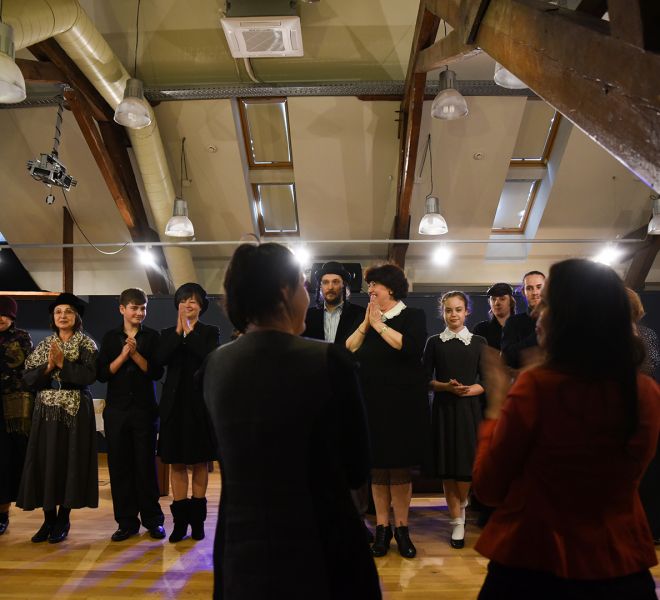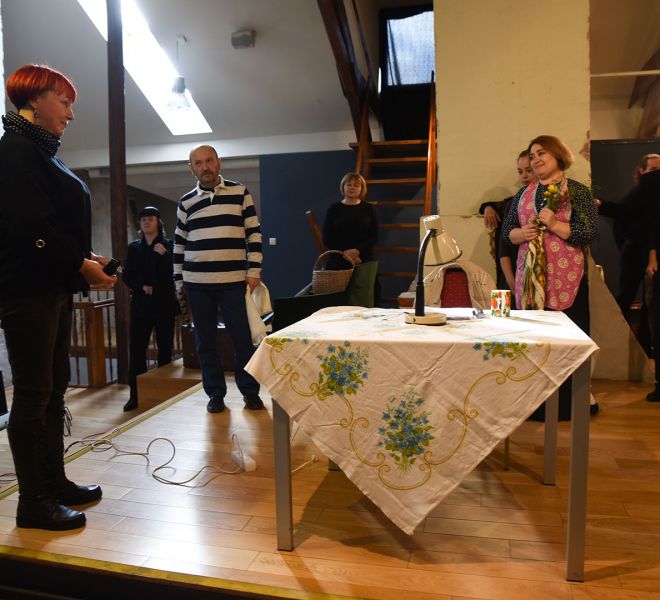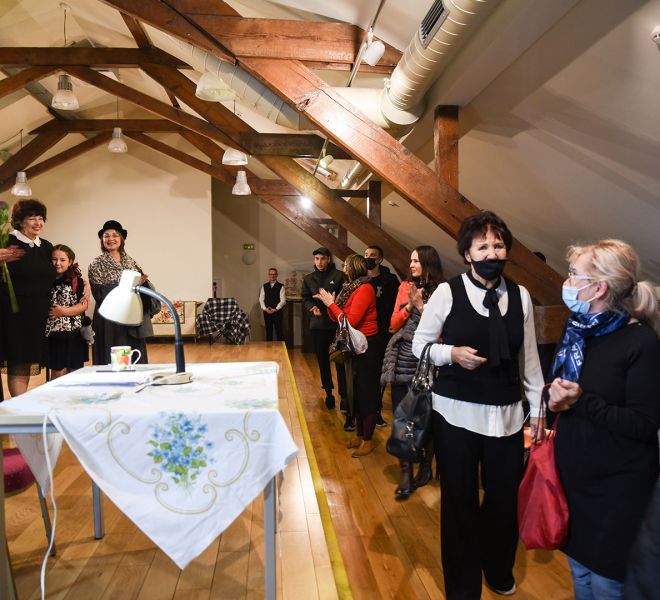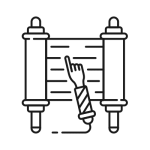
PROGRAM

6 p.m.
Centre of Ethnic Culture
Daržų g. 10
The exhibition will run until October 15th
Exhibition of traditional Jewish paper cuts
“Stories cut in paper. Jewish traditions and modern inspirations”
Author Agata Szepe (Poland)
The exhibition contains handmade papercuts inspired by the style, popular themes and symbolism of the traditional Jewish papercut. The artwork also transgresses the traditional form and content. Typical of the Jewish papercut horror vacui style, in which complicated ornaments and figures should fill the entire space of an artwork, leaving as little free space as possible, is it’s joining with experimental, multi-dimensional perspectives. Bible and traditional themes as well as Hebrew sentences are interwoven with associations from beyond the Jewish universe.
About the author:
Agata Szepe is a doctoral student at the Department of Hebrew Studies at Warsaw University and a tourist guide in Hebrew for Israeli tours in Warsaw. Her passion is papercutting inspired by the traditional Jewish papercut, Hebrew scriptures and modern art. Her papercuts were exhibited among others in the POLIN museum, Warsaw in Poland, Rabbinatsmuseum Braunsbach in Germany and used as an illustration for articles in the New Republic magazine.

5 p.m.
Klaipeda Culture Communication Center Art Yard Studio
Bažnyčių g. 4
Duration up to 2 hours.
Workshop
“Traditional Jewish paper cuts.”
The traditional Jewish papercut was popular folk art in the Jewish Ashkenazi world of pre-war middle and eastern Europe. Existing simultaneously with traditional Polish folk papercuts, it gained the interest of ethnographers such as Regina Lilienthal in the early 20th century .Disappearing almost entirely during the Second World war, it was revived by modern artists, mainly in Israel and Poland.
At the workshops the participants will learn about the history of the Jewish papercuts, their symbolic meaning and connections with Jewish culture and religion. They will also create their own papercuts, inspired by traditional Jewish art.
The creative workshop will be led by artist Agata Szepe.
The necessary resources and materials will be provided by the organizers.
We will communicate in English during the workshop with the help of an interpreter.
Participation will only be permitted to those with the Passport of Opportunities.
The number of participants is limited, therefore registration is required:
ruta.gotika@gmail.com
5 p.m.
Public Library deprtment „Kauno atžalynas“
Kauno g. 49
Duration 1 hour 39 min.
Movie
“The Unorthodox”
2018 | Israel | comedy, drama| director Erilan Malka
The year is 1983 and Yaakov Cohen, the owner of a Jerusalem printing press, is tired from being pushed around. It seems that he was born on the wrong side, with the wrong family name and in a moment’s decision he decides to establish a Sephardic-ultra-Orthodox list that will run to the Jerusalem municipality. He gathers two friends, and together they improvise a campaign – no means, no connections, no money, but with much rage, passion and a sense of justice.
Hebrew with Lithuanian subtitles
Trailer:
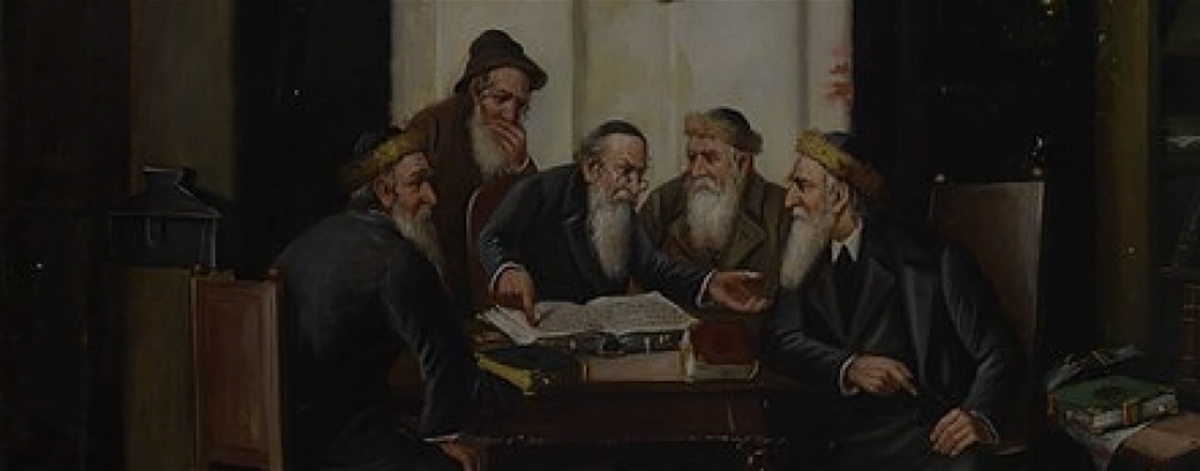
5.30 p.m.
City Municipality Public Library Art library
Janonio g. 9
Lecture/Discussion
“How Rabbi Israeli Salanter’s ‘Musar Movement’ Affected the Traditional Jewish Education System.”
Followers of Rabbi Salanter in the 20th century. At the beginning of the 19th century, a whole network of Yeshivas were created, in which the latter’s ideas were accepted, but not all had the same visions of the Musar, and as a result, a sectarian school of the Musar as an educational project emerged.
The “Musar movement” was started by Rabbi Israel Salanteris (19th century) in Lithuania. In addition to studying traditional sacred subjects, it also required the development of personality and character. Not all higher institutions of traditional rabbinic studies (yeshivas) have included in their curriculum the study of musar (personality character development books) and the corresponding practices of self-analysis and self-education. The example of the Telšiai yeshiva is particularly interesting. The ideas of Rabbi Salanter also attracted some Jewish businessmen, such as the merchant Kalman Ze’ev Wissotzky who founded the well-known issotzky Tea company. Followers of Rabbi Salanter created a whole network of yeshivahs in which the latter’s ideas were accepted, but not all had the same visions of a musar. Therefore, different musar schools emerged as an educational project for this reason.
The Author and presenter of the lecture is a lecturer at the Faculty of Philosophy
PhD associated professor Aušrelė Pažėraitė Vilnius University Department for Continental Philosophy And Religious Study.
More information about the lecturer:
PhD associated professor Aušrelė Pažėraitė is a historian of Lithuanian Jewish thought and the author of three books: “The Formation of Lithuanian Orthodox Judaism in 19th century” (Versus aureus, 2005), “Don’t lose your Trail for the Road: Along the Trajectories of the Heritage of Lithuanian Jewish Religious and Philosophical Thinking” (VU, 2019), “The Responsibility of Religious Person: The Rabbinical Thought of Lithuanian Jews between Rationalism and Hassidic Mysticism” (VU, 2020).
She graduated from Vilnius University and has a Master’s degree in Philosophy and Religious sciences. For the defended dissertation “Rabbi Israel Salanter and the Musar Movement in Lithuania in the 19th Century” she obtained a doctoral degree in history in 2003 from Kaunas Vytautas Magnus University. Since 1998 she has been teaching various disciplines in the history of religions and the history of Jewish thought at the Center for Religious Studies and Research of Vilnius University (now the Department of Continental Philosophy and Religious Studies).
5 p.m.
City Municipality Public Library deprtment „Kauno atžalynas“
Kauno g. 49
duration 1 hour 33 min.
Movie
“Scaffolding”
2017| Israel, Poland | drama, thriller | director Matan Yair
17-year- old Asher has always been the impulsive troublemaker, from primary school, all through junior high and high school. It’s hard for him to concentrate in class, and he is compelled by a lot of rage and violence; yet he is also endowed with a considerable amount of charm and street wisdom. While his strict father sees him as a natural successor to the family’s scaffolding business, Asher finds a different masculine role model in his gentle literature teacher Rami and forges a special connection with him. Torn between the two worlds, Asher looks for a chance for a new life and new identity. When a sudden tragedy occurs, he has to take the ultimate test of maturity.
Hebrew with Lithuanian subtitles
Trailer:
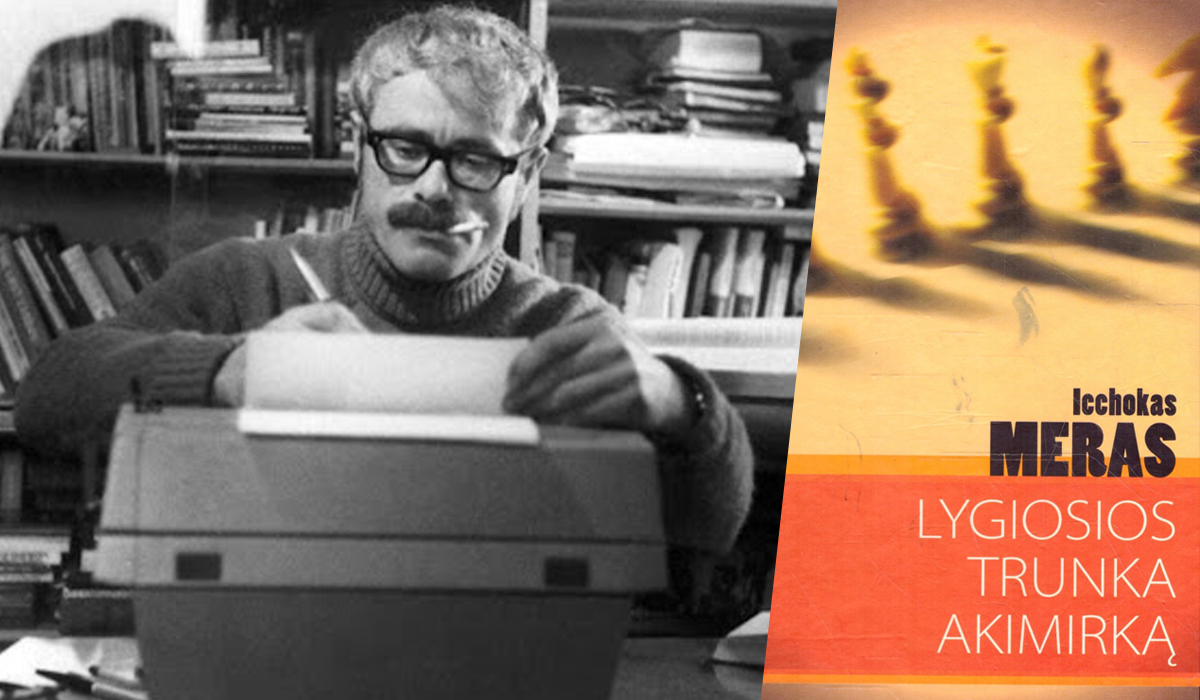
3 p.m.
Klaipeda “Vėtrungė” gymnasium
Gedminų g. 5
An intellectual team game based on Icchok Meras (1934–2014)
“Stalemate”
Three teams from three Klaipeda gymnasiums will take part in an inclusive game that requires both- knowledge and logical thinking. During the game, senior students will test their knowledge of a writer of Jewish descent and one of his best-known novels “Stalemate“.
The following teachers will participate: Dainius Sobeckis, “Vėtrungė” gymnasium, Gitana Gugevičiūtė, “Varpas” gymnasium, Nijolė Kepenienė, “Aitvaras” gymnasium in Klaipėda.
Students from “Vėtrugė”, “Varpas”, “Aitvaras” gymnasiums in Klaipėda, will also participate.
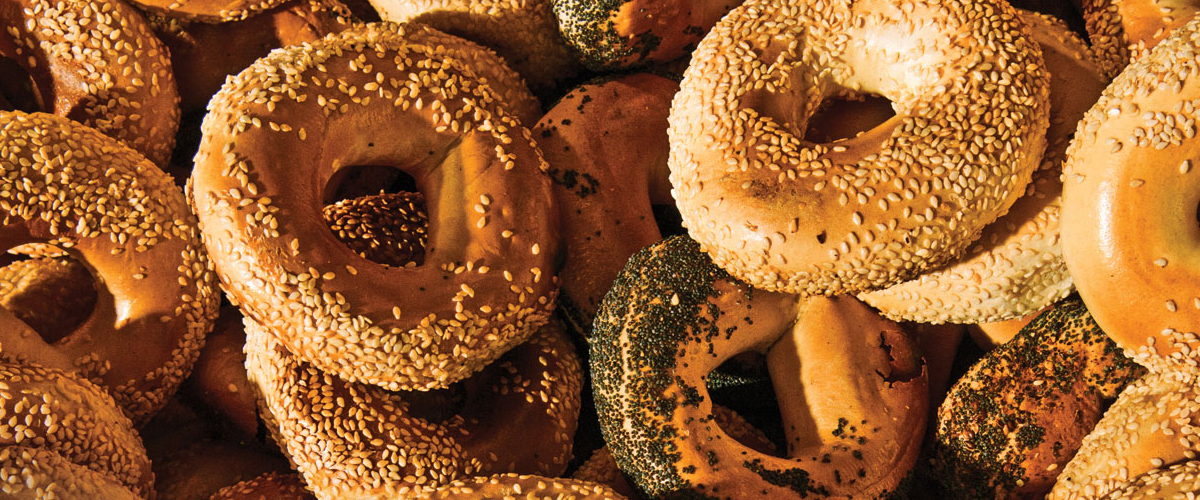
6 p.m.
Klaipėda town Jewish Community centre
Sinagogų g. 3
Tasting food. Food gourmets are welcome.
Do you want to get to know the Jewish culinary heritage? Eat!
Tasting food will not seem like just a banal daily ritual at this event, more of a delicious gastro-experience.
All in all, gathering in a cozy environment, full of unfamiliar, tempting food scents, will allow us to get acquainted with traditional Jewish dishes, and the subtleties of their preparation. At the same time, it will provide opportunities to talk about the mutual understanding, coexistence, cultural identity, and historical memory between the two cultures, Jews and Lithuanians, in today’s dynamically changing and not always friendly world.
We will have a unique opportunity to taste traditional Jewish dishes: chacilim, forshmak, challah, hummus, which have already been mentioned in the Old Testament.
Jewish culinary creativity, traditional dishes and the rules of their preparation ill be presented by Eleonora Elimport.
Participation will only be permitted to those with the Passport of Opportunities.
The number of participants is limited, therefore registration is required:
ruta.gotika@gmail.com
5 p.m.
City Municipality I. Simonaitytė Public Library.
H. Manto g. 25
Duration 1 hour 47 min.
Movie
„Our Father“
2016 | Israel |drama | director Meny Yaesh
This is a story of fatherhood. Ovadia is the strongest and most violent doorman of Tel Aviv night clubs. He has no fear of anything and he never lost a fight . His biggest dream is to become a father, he and his wife Rachel are trying to get pregnant for almost five years. A small time gangster named Shalom Shalom Rozental sees a great potential in Ovadia. Ovadia sees this as great option to start an expensive treatment for his wife. As soon as Rachel gets pregnant, he decides to stop working for Shalom. It’s not that easy.
Hebrew with Lithuanian subtitles
Trailer:
5 p.m.
City Municipality I. Simonaitytė Public Library
H. Manto g. 25
Duration 1 hour 39 min.
Movie
„The Last Band in Lebanon“
2016 | Israel | comedy| directors: Itzik Kricheli, Ben Bachar
An upbeat comedy which takes place against the backdrop of the Israeli withdrawal from Lebanon in May, 2000. The story follows three reserve soldiers, members of a military rock band, who get mixed up in a major drug smuggling scheme orchestrated by their corrupt commander, leaving them stranded in the “no man’s land” between Israel and Lebanon. Caught between a gang of Hezbollah fighters and disgruntled members of the South Lebanon Army, the three soldiers must find a way to return to Israel alive without any combat experience and with a guitar as their only weapon.
Hebrew with Lithuanian subtitles
Trailer:
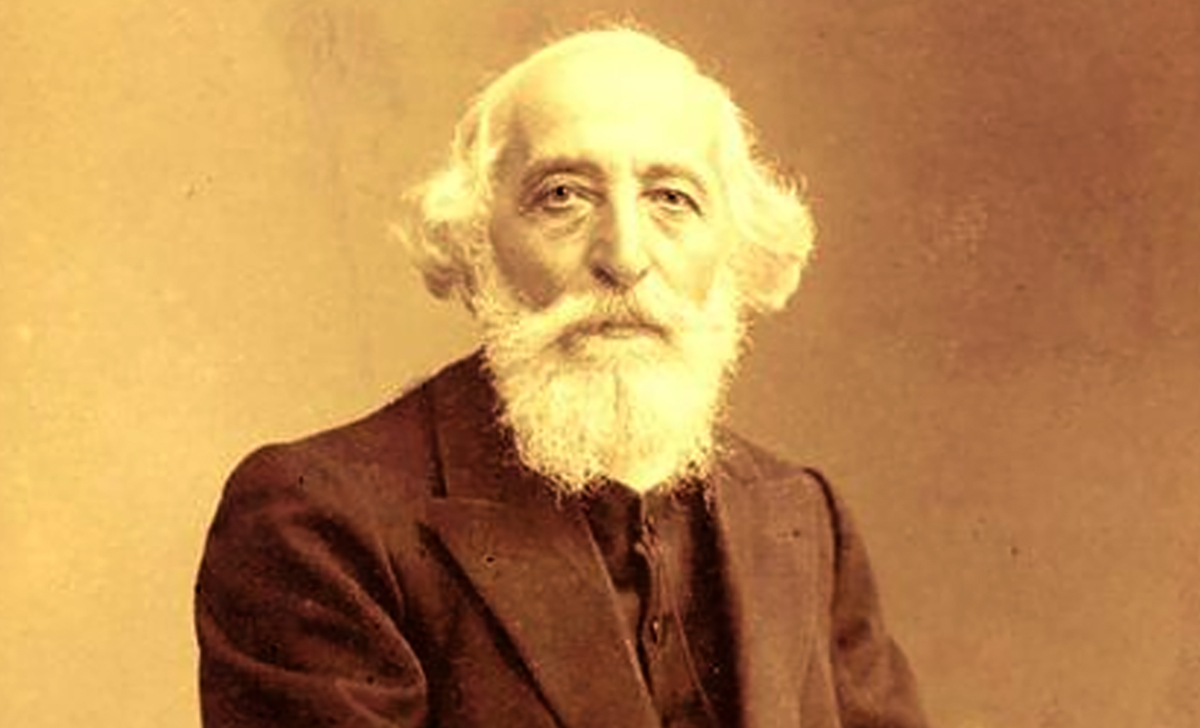
6 p.m.
City Municipality Centre of Ethnic Culture
Daržų g. 10
Lecture/discussion
“Rabbi Isaak Rülf’s ideas and their transformation“
Isaac Rülf, a rabbi, an active public figure, a philosopher, one of the leaders of the Zionist movement and a publicist, of the Klaipėda Synagogue Community (Synagogen Gemeinde), has become almost a native symbol of Klaipeda from the second part of nineteenth-century . The flourishing of the social and cultural life of the Jewish communities in Klaipėda is related very closely with the activities of I. Rülf. On the other hand, in Klaipeda, not only as the northernmost city in East Prussia, but also as a “borderland” with Russia, I. Rülf faced social, cultural and political challenges that shaped his views: if in 1865 I. Rülf came to Klaipeda as an emancipated german of the Jewish religion, at the same time (in 1897) he had already taken over the ideas of the Musar and became the spiritual leader of religious Zionism.
The lecture aims to discuss the factors that led to such a transformation of I. Rülf’s position and the change of his political, social and cultural (“philosophy of life”) ideas.
The Author and presenter of the lecture is lecturer of Institute of Baltic Region History and Archaeology PhD. Hektoras Vitkus.
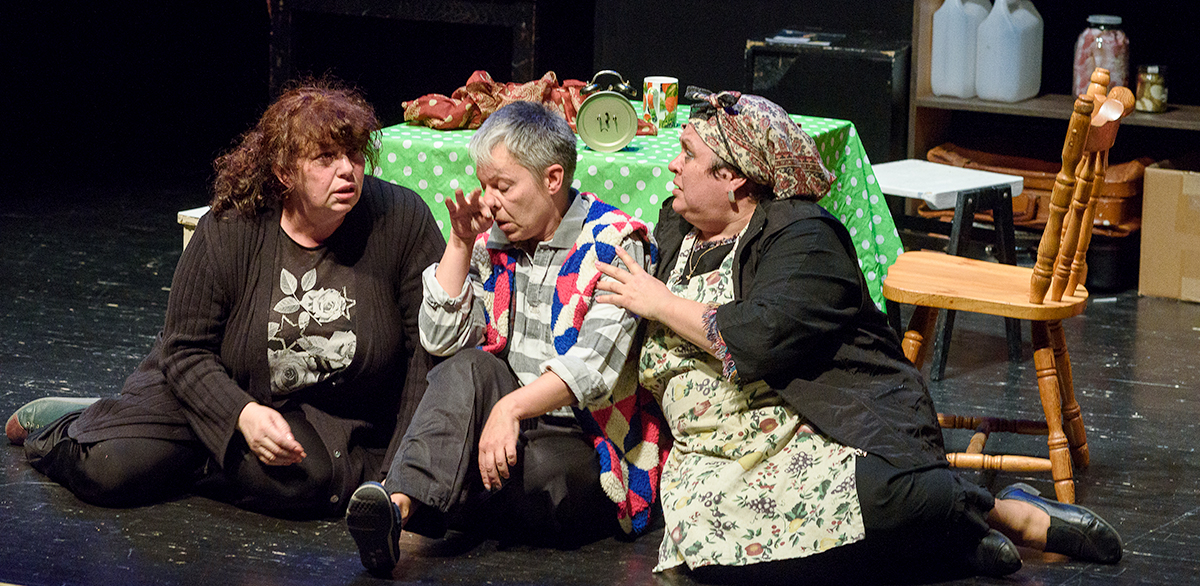
2 p.m.
City Municipality I. Simonaitytė Public Library
H. Manto g. 25
Duration 2 hour
Meeting
with Klaipėda Jewish Theatre “Shatil“ (Šatil)
There is a Jewish community theatre „Shatil“, which was founded in 1988-89 in Klaipėda. “Shatil” means “greenery.” The theatre did not last long, because after Lithuania regained its independence, most of the members of the theatre troupe went to Israel. Thanks to those nthusiastic people who love theatre we can see the performance of Klaipeda Jewish Theatre “Shatil” again.
We kindly invite you to meet the theatre „Shatil“ whose actors will perform passages from the performances “Mummies”, “We are Astronauts”, “A terrible world for me without you”.
The theme of the play “Mummies” is current events in Ukraine. The main characters are three women of different nationalities. They are best friends determined to lay down their lives for each other. When the political circumstances suddenly change, they start to quarrel.
In the comedy “We are Astronauts” we will see a picture of a traditional Jewish family with all the tereotypes about Jews: marriage only to a person of the same nation, unconditional respect for traditions and ancestral experience, etc. Unfortunately, the love that permeated people‘s lives does not pay atention to any stereotypes and rules. The whole family is forced to choose – happiness and the love of their son or unconditional observance of traditions?
The play “A terrible world for me without you” tells the story of a young girl who managed to escape from a train transporting Jews to a concentration camp. The expectant Jew was sheltered by a peasant. In the basement, the young girl gave birth to a premature baby. Realizing that staying with the baby would endanger him, the girl left the baby to be raised by a peasant.
Author of plays Asia Kotliar
Director Nerijus Gedminas
The passages will be performed in Russian language.
2021 EVENTS
Photos by I.Mockutė-Pocienė
ALL EVENTS ARE FREE OF CHARGE!
Photos and videos will be taken during the events.
The participants may be seen in photos and videos that will be posted on social networks and media.
In view of uarantine restrictions,
visitors are kindly requested to comply with all security requirements in place in the Republic of Lithuania.
Participation in all events is possible just with the Passport of Opportunities.
Sorry for any inconvenience this may cause.

